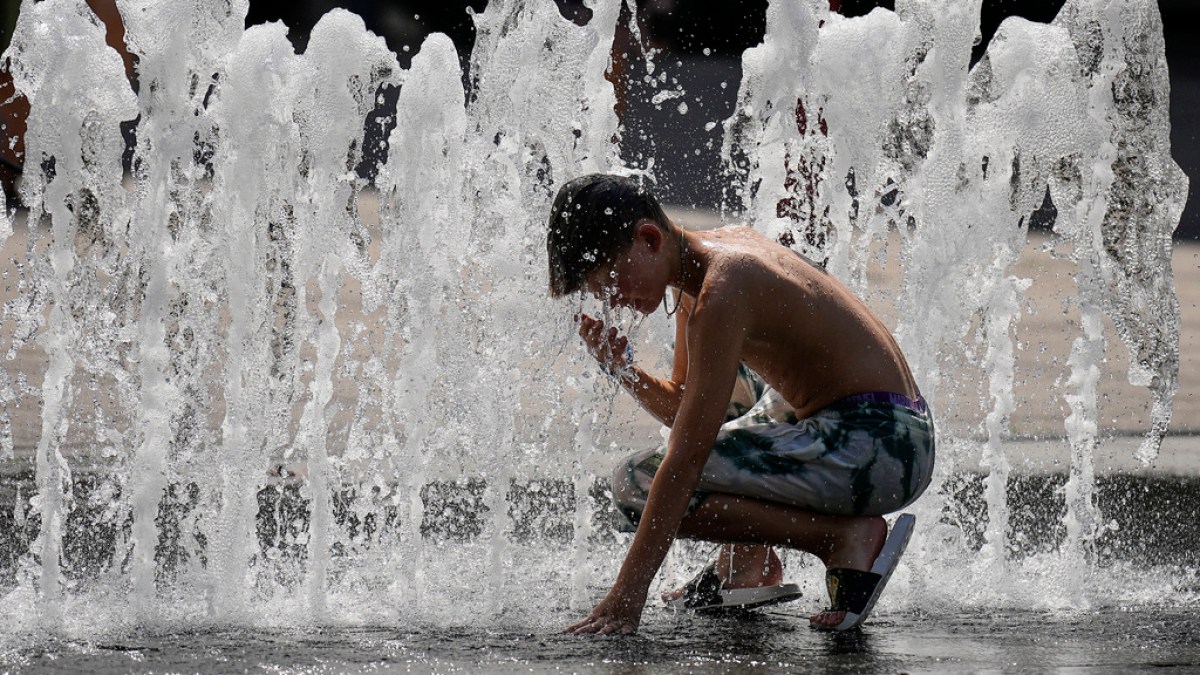The latest findings reveal that humanity has just experienced the hottest 12-month period in 125,000 years. This climate crisis, likened to a “disaster movie” by scientists, is characterized by soaring temperatures, wildfires, powerful storms, and floods.

Also Read: Somalia Floods: Thousands Trapped in their Homes
From November 2022 to the end of October 2023, the global average temperature soared to 1.32 degrees Celsius above pre-industrial levels, marking the hottest 12-month period on record.
This comes from an analysis of international data conducted by Climate Central, a nonprofit research group.
The report paints a picture of a world struggling with temperatures that should not be the norm, driven by the excessive burning of fossil fuels.
The consequences of this extreme heat are felt worldwide, affecting 90% of the global population, 7.3 billion people. Unusual heatwaves, with very strong climate fingerprints, have become the norm for vast regions.
In India, 86% of the population experienced at least 30 days of high temperatures, influenced by climate change. Similarly, the United States saw 88 million people, or 26% of the population, affected by the heat.
Cities like Houston faced challenges, enduring the longest heat streak of any major city on Earth, with 22 consecutive days of extreme heat between July and August.
The impact is not limited to land; ocean temperatures have consistently been at record-high levels since May, fueling the development of hurricanes and tropical storms globally.
Also Read: Another Earthquake Hits Nepal Days After 157 Killed
Adding to the urgency is the confirmation that October 2023 is the hottest October ever recorded, surpassing the previous record set in 2019 by 0.4 degrees Celsius.
This month was a 1.7 degrees Celsius warmer than the pre-industrial average. Such anomalies indicate a dangerous trajectory, with every month since June breaking heat records and consistently staying at least 1.5 degrees Celsius above pre-industrial levels.
Beyond the statistics, the record-breaking heat translates into suffering. Heatwaves, droughts, and wildfires have led to thousands of deaths, displacement, and loss of livelihoods.
Vulnerable populations, especially those engaged in manual labor or living in poverty, are affected. Urgent action is required to address the immediate impacts of extreme temperatures and to mitigate the long-term consequences.
While El Niño is contributing to the current spike in temperatures, the long-term trend of global warming is attributed to human activities.
The increase in carbon dioxide levels in the atmosphere is driving this crisis, creating conditions that are far from normal and sustainable.
Also Read: Nepal Earthquake Kills More than 150 in Western Nepal
The upcoming UN COP28 climate conference in Dubai, scheduled for December, gains even more significance as nations need to reassess and strengthen their commitments to meet the Paris Climate Agreement goal of limiting global warming to 1.5 degrees Celsius.
Despite the alarming data and the urgent need for action, there is a reality. The world is failing to meet the Paris climate goals.
A report published by the UN reveals that governments are planning to produce more than double the amount of fossil fuels than the limit that would cap global heating at 1.5 degrees Celsius.
This indicates a gap between rhetoric and action, about the collective will to address the climate crisis. The records being are not just numbers; they represent the suffering faced by communities around the world.
From heat-related illnesses and deaths to displacement and economic losses. It is a reminder that the consequences of climate change are not abstract but deeply personal, affecting the lives of individuals.
As the world prepares for COP28, there is a growing sense of urgency and the realization that this conference is a turning point. The decisions made in Dubai will shape the future of global climate action.
Countries must move beyond pledges and take concrete steps to transition away from fossil fuels, invest in renewable energy, and implement sustainable practices.
Also Read: 80 Bird Species will be Renamed Says US Ornithological Society


/cloudfront-us-east-2.images.arcpublishing.com/reuters/7PBEVR7URNKTTM4RRBNZUT4QAQ.jpg)



















